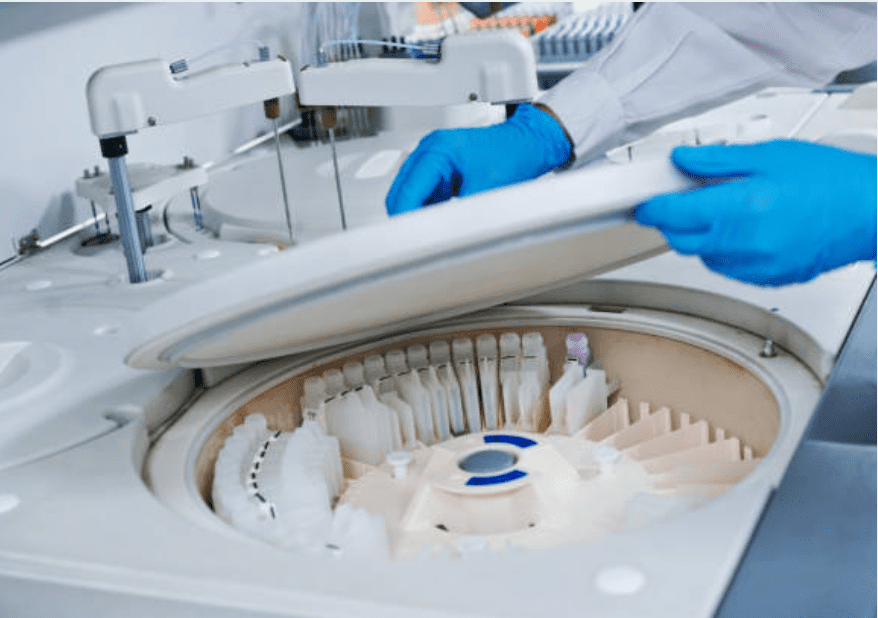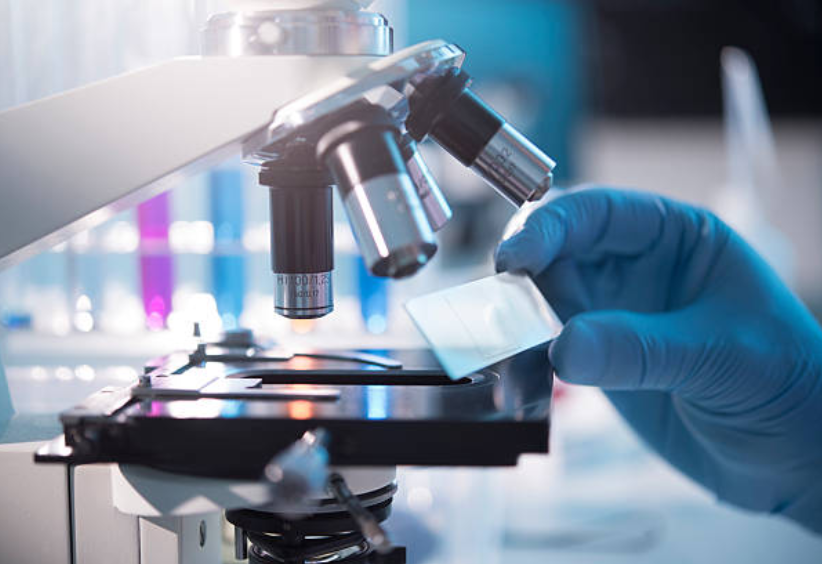¿Por qué elegir un procesador de tejidos con 330 casetes para su laboratorio?
Processing a high volume of tissue samples accurately and efficiently is a common challenge in busy pathology labs.Using outdated or low-capacity tissue processors can lead to workflow bottlenecks, delays in diagnostics, and increased labor costs.The Tissue Processor 330 Cassettes offers a streamlined, high-throughput solution, designed for labs that need reliable, scalable performance every day.
A Tissue Processor with 330 cassettes capacity provides the ideal balance of volume, automation, and consistency for histopathology labs. Discover how this equipment can increase efficiency and improve lab outcomes while meeting international standards for quality and compliance.

Choosing the right tissue processor is more than just a matter of capacity—it impacts your lab’s entire workflow. In this article, we explore the key reasons why a Tissue Processor 330 Cassettes is becoming the preferred choice in medium to large-scale laboratories around the world.
What Is the Tissue Processor with 330 and How Many Cassettes Can It Handle?
Many lab professionals are unfamiliar with equipment specifications and capacities.
Without clear information, it’s easy to select a machine that doesn’t align with lab needs.
Understanding what the Tissue Processor 330 Cassettes offers helps you make an informed investment.
A Tissue Processor with 330 Cassettes is a specialized piece of histology equipment designed to automate the dehydration, clearing, and paraffin infiltration of biological tissue samples. As the name suggests, it can handle up to 330 tissue cassettes in a single cycle, making it ideal for mid- to high-volume laboratories. This capacity reduces the number of processing cycles needed per day, improving productivity and consistency in sample preparation.
How Does a 330-Cassette Tissue Processor Improve Lab Efficiency?
Manual or low-capacity processors can cause workflow delays and inconsistent sample quality.
These inefficiencies lead to staff fatigue and slower diagnostic turnaround.
A Tissue Processor 330 Cassettes can drastically enhance your lab’s throughput and reliability.
Thanks to its high cassette capacity and automation features, this tissue processor significantly reduces manual intervention. This improves workflow efficiency and reduces operator error. Features such as pre-set programs, overnight processing, and automated reagent handling allow your staff to focus on other critical tasks, especially in labs that process hundreds of samples daily. It’s not just a time-saver—it’s a tool for scaling your lab operations without compromising quality.
Which Features Should You Look for in a Tissue Processor with 330 Cassette Capacity?
Not all tissue processors are created equal.
Missing critical features could compromise your lab’s compliance and efficiency.
Knowing what to look for ensures your purchase meets current and future needs.
When evaluating a Tissue Processor with 330 Cassettes, key features to consider include:
Automated reagent management
Leak-proof and temperature-controlled chambers
User-friendly touch screen interface
Pre-programmable cycles
Low reagent usage and waste control
These features directly contribute to maintaining sample integrity, minimizing running costs, and ensuring that your lab meets both domestic and international standards for histopathology processing.
Why Is the 330 Cassette Capacity Ideal for Medium to Large Labs?

Labs often struggle to balance capacity with budget.
Too small a machine slows output; too large wastes resources.
The 330 cassette capacity hits a practical sweet spot.
Labs processing between 100–1000 samples daily benefit most from a 330-cassette tissue processor, as it allows multiple departments or facilities to share the equipment efficiently. It ensures high daily throughput while avoiding unnecessary overcapacity and cost. Whether you’re expanding operations or replacing older equipment, this size supports both current workloads and moderate growth.
How Does the Tissue Processor 330 Compare to Other Cassette Capacity Models?
Labs often feel overwhelmed by too many equipment options.
Choosing an ill-suited processor may affect sample turnaround and quality.
Comparing models by capacity clarifies suitability.
Compared to smaller models (e.g., 150 or 200 cassette processors), the Tissue Processor 330 Cassettes offers better batch efficiency and lowers the per-sample processing cost. While larger units (400–500 cassettes) are ideal for centralized labs, they may be too expensive or underutilized in mid-sized facilities. The 330 model bridges that gap, delivering both scalability and affordability.
What Are the Advantages of Using a 330-Cassette Tissue Processor in Histopathology?
Histopathology demands both precision and volume.
Inconsistent tissue processing results in diagnostic errors.
The Tissue Processor with 330 Cassettes ensures uniform, high-quality tissue preparation.
A 330-cassette processor enhances tissue consistency, which is critical for downstream diagnostics such as immunohistochemistry or molecular pathology. Its programmable processing cycles ensure reproducible results every time. Also, by minimizing human error, it reduces reprocessing rates and associated costs.
What Maintenance Is Required for a Tissue Processor with 330 Cassettes?
Many labs underestimate maintenance needs, risking downtime.
Unexpected breakdowns disrupt workflows and delay diagnoses.
Regular, preventive maintenance ensures continuous performance.
Maintenance for the Tissue Processor with 330 Cassettes is relatively simple but essential. Key tasks include:
Daily cleaning of reagent reservoirs
Weekly system flush cycles
Monthly inspection of gaskets and seals
Quarterly software updates and cycle calibration
Routine maintenance maximizes the processor’s lifespan, ensures accurate results, and prevents costly repairs or replacements.
Where Can You Buy a Reliable Tissue Processor for 330 Cassettes?
Finding trustworthy suppliers can be a challenge, especially when buying internationally.
Risks include counterfeit products, poor support, and delivery delays.
Partner with certified and experienced medical suppliers like AMIS.
En AMIS, we specialize in providing verified, high-quality tissue processors, including the Tissue Processor 330 Cassettes. With strong factory relationships, international certifications, and competitive pricing, we offer:
CE and ISO-certified equipment
Custom branding options
On-time global shipping
After-sales technical support
We serve clients across Asia, Europe, the Middle East, Africa, and the Americas, including labs, hospitals, and medical distributors looking for reliable solutions.

Choosing the Tissue Processor with 330 Cassettes is a strategic decision for any lab that values capacity, consistency, and efficiency. It’s the optimal solution for scaling your histopathology services without sacrificing quality.



